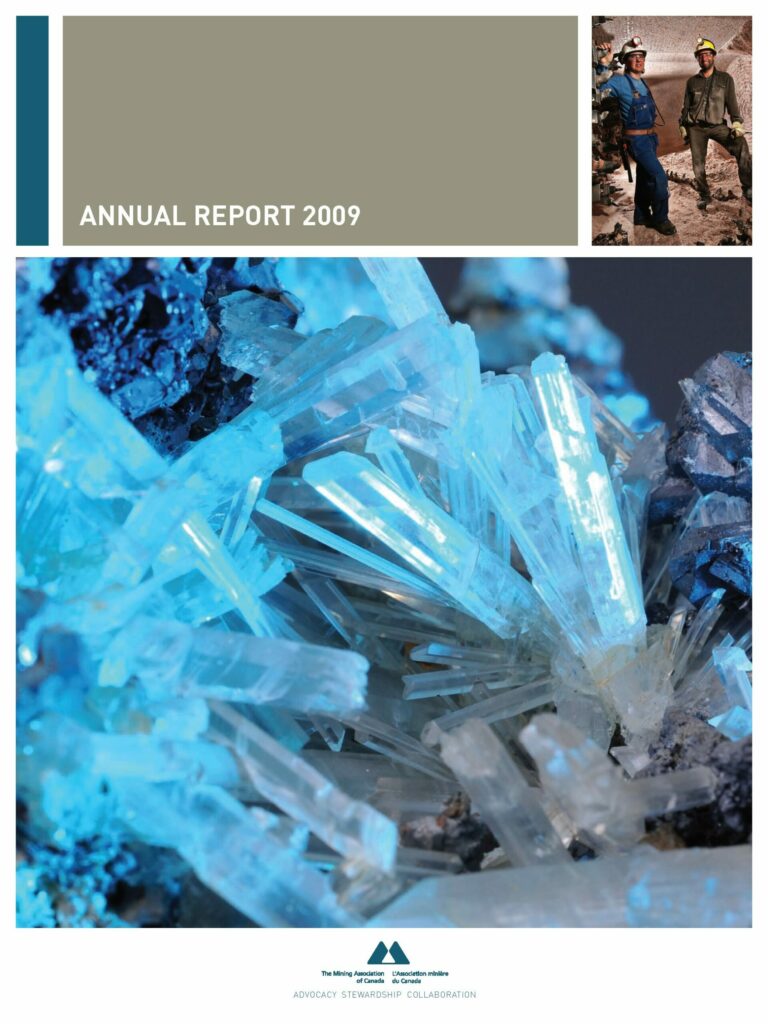After the economic tumult of late 2008 and early 2009, the latter part of 2009 showed some signs of recovery. The future looks promising for Canadian mining companies. Many indicators suggest that despite impressive growth over the past decade, China and India remain relatively undeveloped and offer strong market opportunities for decades to come. Canada will benefit from the mineral and metal prices associated with the global demand that these developing countries create. Further, as an investment destination, Canada features low taxes, little political risk, a stable energy supply and a skilled mining workforce. The Canadian industry is also diversified, with strengths in such areas as oil sands, potash, uranium, gold, diamonds, aluminum, nickel and iron ore. This diversification provides a degree of stability during cyclical commodity-specific movements.
In 2009, a study by Canadian Business for Social Responsibility found that MAC’s Towards Sustainable Mining initiative has earned a high degree of credibility and promotes continuous improvement. The study’s review of corporate social responsibilityframeworks for the extractive industry reaffirms that TSM is effective and credible, and that it enables our members to demonstrate their commitment to improved performance in sustainable development.
The TSM initiative continued to evolve during the year. After extensive committee efforts, consultations with the TSM Community of Interest Advisory Panel, and hard work by initiative leaders and other MAC committees, MAC’s Board of Directors approved three new protocols that will be integrated into TSM over the next few years. By 2013 all MAC members will publicly report their TSM scores in the areas of safety and health, biodiversity conservation, and Aboriginal and community outreach. These are the first new performance elements since the TSM initiative began in 2004.
For more details on the topics discussed here, and on other aspects of MA C’s work, we encourage you to read the annual report in full.



